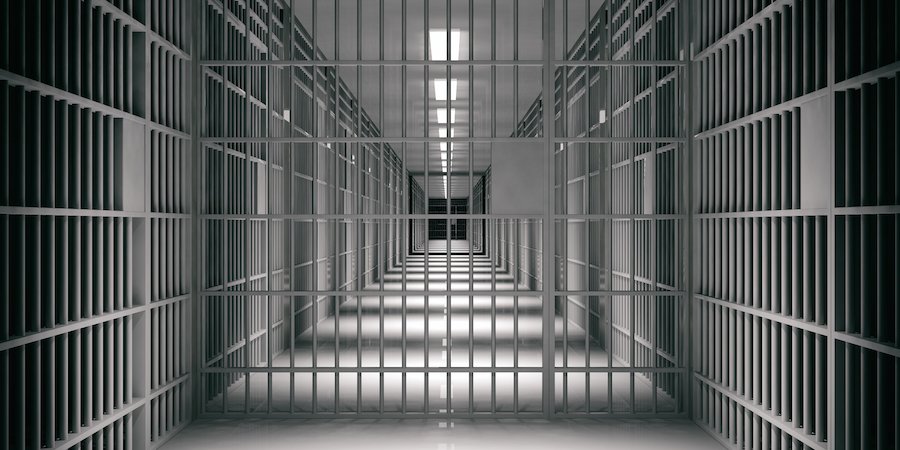
Class 2 felonies are the second most serious category of felony crimes in Colorado. A conviction is punishable by 8 to 24 years in prison and/or fines of $5,000 to $1 million. Common examples of class 2 felonies are second-degree murder, sexual assault and human trafficking.
Convictions for class 2 felony crimes can never be sealed from the defendant’s criminal record.
In this article, our Denver Colorado criminal defense attorneys discuss:
- 1. What are class 2 felonies?
- 2. What is the sentence for a class 2 felony in Colorado?
- 3. What are typical examples?
- 4. When can class 2 felonies be sealed?
- 5. May I have a trial by jury?
- 6. What are the immigration consequences?
- 7. How do convictions affect gun rights?
- 8. What is the criminal statute of limitations?
1. What are class 2 felonies?
Colorado law subdivides felonies into six categories, with class 1 being the most serious, and class 6 being the least. Class 2 felonies are the second most serious category of Colorado felonies.

The presumptive prison term for class 2 felonies in Colorado is 8 to 24 years.
2. What is the sentence for class 2 felonies in Colorado?
The presumptive penalty for class 2 felony offenses is eight to 24 years in Colorado State Prison and/or $5,000 to $1,000,000 in fines. The mandatory parole period lasts for three years if the crime was not a crime of violence. Otherwise, parole lasts five years.
Depending on the specifics of the case, the penalty range can vary:
| Colorado class 2 felony | Sentence range |
| Presumptive |
5 years of mandatory parole if the offense is a crime of violence. Otherwise, 3 years of mandatory parole. |
| Enhanced |
5 years of mandatory parole if the offense is a crime of violence. Otherwise, 3 years of mandatory parole. |
| Aggravated |
5 years of mandatory parole if the offense is a crime of violence. Otherwise, 3 years of mandatory parole. |
| Exceptional circumstances |
5 years of mandatory parole if the offense is a crime of violence. Otherwise, 3 years of mandatory parole. |
Note that a prison sentence is mandatory if the defendant has two prior felony convictions. Also note there are no extraordinary risk class 2 felonies.1
Learn more in our article Colorado felony sentencing guidelines.
3. What are typical examples?
Common class 2 felonies in Colorado include the following serious crimes:
- Attempt to commit a class 1 felony (CRS 18-2-102)
- Second-degree murder (CRS 18-3-103), not including heat of passion killings
- First-degree kidnapping (CRS 18-3-301), if the victim was liberated unharmed prior to conviction
- Sexual assault (CRS 18-3-402), if the victim suffers serious bodily injury, if deadly weapons or threats are used, and/or if the defendant was physically aided by at least one other person
- Human trafficking of children for involuntary servitude (CRS 18-3-503)
- Aggravated robbery of controlled substances (CRS 18-4-302)
- Theft of property (CRS 18-4-401), when the property is valued at $1,000,000 or more
See the state government’s official list of Colorado class 2 felonies.
4. When can class 2 felonies be sealed?
Class 2 felony convictions are unsealable in Colorado. But if the case gets dismissed, the defendant can pursue a record seal right away.2
Learn more about Colorado criminal record seals.

Convictions for class 2 criminal offenses in Colorado cannot be sealed from the defendant’s criminal record.
5. May I have a trial by jury?
Yes. Defendants charged with a class 2 felony are entitled to a jury trial of twelve jurors. With the court’s permission, the jury can be smaller as long as there are at least six jurors. Defendants can also waive their right to a jury trial and opt for a bench trial instead.3
6. What are the immigration consequences?
Class 2 felonies usually are deportable. Therefore, non-citizens who have been charged with a crime should consult with experienced counsel in an effort to get the charge dismissed or lessened to a non-deportable crime. Learn more about the criminal defense of immigrants in the Colorado criminal justice system.4
7. How do convictions affect gun rights?
People convicted of any felony can no longer own or carry firearms under Colorado criminal law. Read about how convicted felons can get firearm rights restored by a Governor’s Pardon.5
8. What is the criminal statute of limitations?
It depends on the charge. There is no statute of limitations for Colorado district attorneys to bring charges for murder, kidnapping, or sexual assault against a child. Otherwise, the criminal statute of limitations to bring class 2 felony charges ranges from three to 20 years after the alleged crime occurred, depending on the case.
For instance, the time limit to press criminal charges for sexual assault charges against an adult is 20 years after the rape. But if a police report was made within 20 years of the rape – and if there is DNA evidence – then criminal charges can be brought at any time.6
Legal References
- C.R.S. (criminal statute) 18-1.3-401; see also Melton v. People, (2019) CO 89, 451 P.3d 415; see also Page v. People, (2017) CO 88, 402 P.3d 468.
- CRS 24-72-701 – 708.
- CRS 18-1-406.
- 8 USC 1227.
- CRS 18-12-108; Colorado Constitution, Article IV, § 7.
- CRS 16-5-401.
